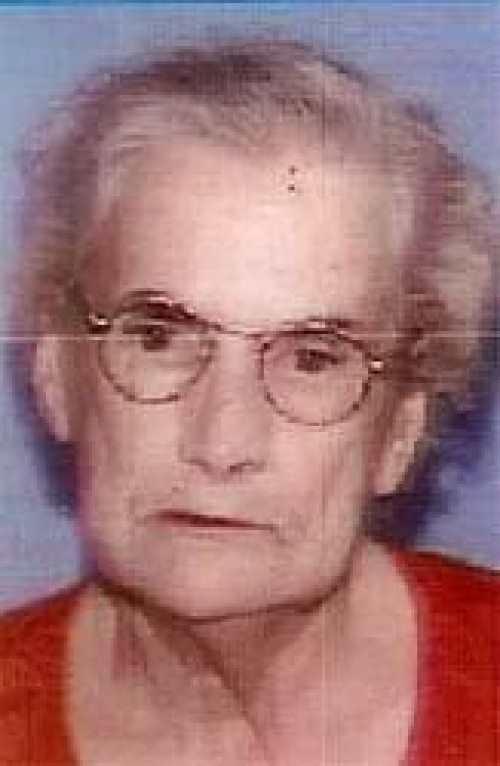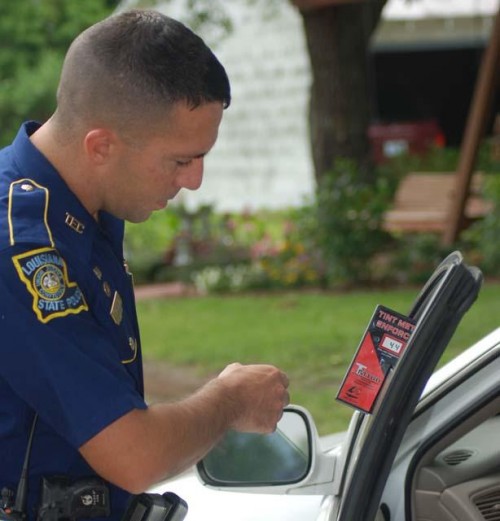Ronald J. Dubois Sr.
May 19, 2008
Edna Besson
May 21, 2008With more resources at hand, the Louisiana State Police have begun to crackdown on motorists driving with very dark tinted windows.
In late March, the state bought and issued all state trooper patrol units window tint meters.
“It’s always been the law, but we didn’t write tickets unless we had one of these in the car to tell drivers what the percentage was or how to fix it,” said Trooper First Class Gilbert B. Dardar Jr., Troop C’s public information officer. “It’s easier to enforce the law now.”
Vehicles must allow at least 40 percent light transmission through the front side windows, 25 percent through the side rear windows and 12 percent in the rear windshield.
No tinting can be put on the front windshield.
Drivers are responsible if they bought a vehicle with illegally installed tinting. They will be issued a citation, Dardar warned.
The problem is so widespread in south Louisiana that police are not shy about using the strongest language possible to confront it.
“We call it an epidemic,” said Dardar. “That’s a heavy word. It means it’s everywhere. Go ride around town; it’s everywhere. We’ll see a bunch of them without looking very hard.”
Tinting is not something limited to vehicles used by teen and young adult drivers. Company vehicles are also getting ticketed regularly for excessively tinted windows.
While drivers are the easiest targets, going after the manufacturers and installers are a top priority as well.
“That is the ultimate corrective action, because if we can pinpoint which shops are putting in illegal window tint on cars, they will be held accountable,” said Dardar. “It’s illegal and the fines are hefty.”
A first-time offense is a $1,000 fine; second offense is $2,000, and a third offense calls for suspension of business operation.
Vehicles with very dark tinting are not just a hazard for drivers, but also for law enforcement agents patrolling the highways.
“Imagine for an officer’s safety, I’m standing right here trying to talk to the driver, and I can’t see who or what else is inside,” explained Dardar. “For an officer, it’s a big deal.”
In addition, crime can be reduced if all illegal tinting were removed. Security cameras cannot pick up criminals or suspects inside such vehicles, he explained.
“A good law-abiding citizen knows it’s illegal and to leave it alone,” insisted Dardar.
Trooper First Class Gilbert Dardar Jr. uses a window tint meter to test a car window. State police are ticketing motorists whose window tint is greater than legally allowed. * Photo by KEYON K. JEFF








